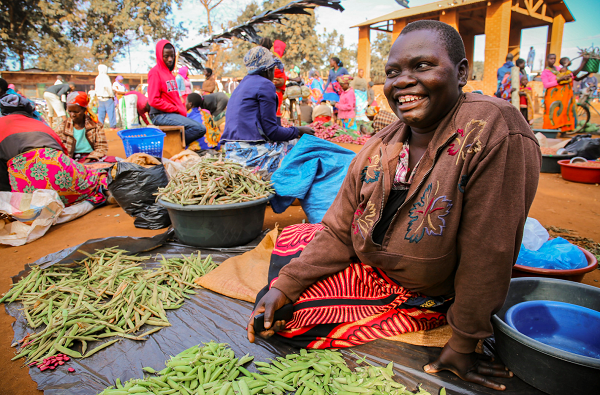Building Resilience and Adapting to Climate Change in Malawi (BRACC) is a five year programme funded by the Government of the United Kingdom (2018-2023).
The long-term goal is to contribute to a reduction in extreme poverty and end the recurrent cycle of hunger and humanitarian assistance in Malawi. The programme aims to do this by developing market-based approaches to improving people’s livelihoods and scalable social safety net systems that respond more predictably and efficiently to weather- and climate-related shocks.
The programme also addresses environmental degradation, a key long-term risk facing Malawi, by reducing urban demand for charcoal, the most significant driver of deforestation and degradation and by supporting the protection of several national parks across Malawi.

Programme objectives
BRACC focuses on southern Malawi, targeting districts with the highest vulnerability to weather-related shocks, poverty, and chronic food insecurity. However, many activities focus on a wider set of districts or operate at the national level. Overall, the programme aims to target around 300,000 households with a set of integrated interventions designed to increase household and community resilience to weather and climate related shocks.
The BRACC programme is made up of several related projects, delivered by alliances of Malawian and international organisations. You can explore the six main projects that deliver BRACC's work by browsing the 'Projects' tab, above.
Through these activities, BRACC expects to work in partnership with the Government of Malawi and communities and businesses to achieve:
1. intensified and diversified agricultural production and improved nutrition for targeted vulnerable households
2. enhanced and inclusive access to markets and the productive resources necessary to develop increased secure and predictable incomes for targeted households
3. reduced exposure to drought and floods for vulnerable households and communities in targeted areas
4. increased capacity of national, sub-national and non-state actors to prepare for, plan, monitor and respond to shocks
5. a strengthened and more shock-sensitive social protection system
6. a reduction in forest deforestation and degradation and more sustainable livelihoods for forest-dependent communities
7. more effective, coordinated and targeted, government and donor investments.
About this website
The purpose of this website is to increase readers’ understanding of:
- how communities in Malawi are coping with shocks and stresses, including climate- and environment-related stresses
- how communities and their partners in government, non-governmental organisations and multilateral agencies can end poverty and strengthen people’s short- and long-term resilience and adaptation to climate change.
Ultimately, by sharing lessons learned and emergent practices and strengthening knowledge, the website aims to help readers plan, implement, evaluate and learn from both policies and actions on the ground.
The website is managed by the BRACC Knowledge and Policy Hub: contact us.
